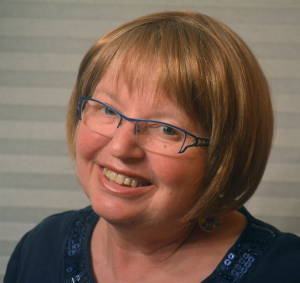Survivors do not give up easily. I dare say that most have an awareness of their own resilience and ability to survive under extremely adverse conditions.
I grew up in a bubble of sorts, feeling protected and safe after arriving in post-war Toronto from my birthplace in Norway. I was only a year old and very much loved by my parents. I was, to them, a light after the darkness and, to a large extent, a reason to keep on living.
My parents were Hungarian Holocaust survivors who had defied the odds. My mother was liberated in Bergen-Belsen concentration camp and met my father in the Displaced Persons camp there. Both lost many close family members in Auschwitz. After they were married, they spent three years in Norway prior to emigrating to Canada. The impact of their Holocaust experiences resonated within them for the rest of their lives.
Life in Canada was definitely a challenge . My parents struggled to find jobs in the garment industry. Slowly, they began to learn English and to adapt to a very different lifestyle than they had known in Europe. Honest, hard working people, they soon saved enough money to purchase a small home for the three of us.
My parents formed friendships with other survivors and exchanged stories with them over dinner, or a slice of sponge cake and tea. Over time, Toronto became home. Although their past lives and loved ones were never forgotten, they had the strength and determination to move on.
The anti-Semitism that had existed in Canada before and during World War II appeared to have gone into hiding. Perhaps it was out of pity for those who had suffered so terribly in Europe or simply a desire for some relief after a war that had taken the lives of many Canadian soldiers, among others.
Many of us in North America mistakenly believed that the world had learned its lesson and was becoming a safer place. Today, we know better. Jews around the world have witnessed a massive backlash of antisemitism unlike any that has been seen since the Holocaust. From world reaction to the war in Gaza to brutal violence and destruction in France, we have been reminded that anti-semitism never actually goes away. It just takes a breather before, once again, rearing its ugly head.
I always imagined that a resurgence of violence towards Jews would re-traumatize Holocaust survivors who have been eye witnesses to this type of aggression before.The thought even occurred to me that they might anticipate the possibility of another Holocaust looming over the horizon. However, it now seems to me that there is no actual basis for that assumption.
I know now that, if my parents were alive today, they would tell me not to worry, and reassure me that everything will turn out fine. I understand that they learned, from their own suffering, that it is absolutely essential to maintain hope, no matter how bleak one’s life’s circumstances may become.
Survivors do not give up easily. I dare say that most have an awareness of their own resilience and ability to survive under extremely adverse conditions. After all, this is what they did 70 years ago, against all odds.
Certainly, many were broken physically and emotionally after traumatic separation, degradation and deprivation. Yet, over time, many were able to regain their strength and get on with their lives.Those who had tragically lost entire families were able to enter into new marriages and start new families. This, in itself, is both remarkable and inspiring.
The survivors that I have been privileged to know have been, on the whole, resourceful and capable people. Some made aliyah (moved to Israel) and fought in the Israel’s 1948 War of Independence. Their grandchildren are now fighting for Israel’s survival, as did they and their children. We have learned and continue to learn from them. This is what gives me hope. This is what gives me strength.


